Loss of Control Workshop – By Matt Lane, Chris Kidd and Kanchana Gamage
I recently attended a ‘Loss of Control’ webinar by Kanchana Gamage, Matt Lane and Chris Kidd. The presentation is brought by Astral Aviation Consulting who work in partnership with the CAA. I think it was a really interesting talk with some key take-away points to learn and implement in order to become a proficient airman. This blog post will outline the main take-aways from the workshop.
Below is the overview of what was covered in the webinar:
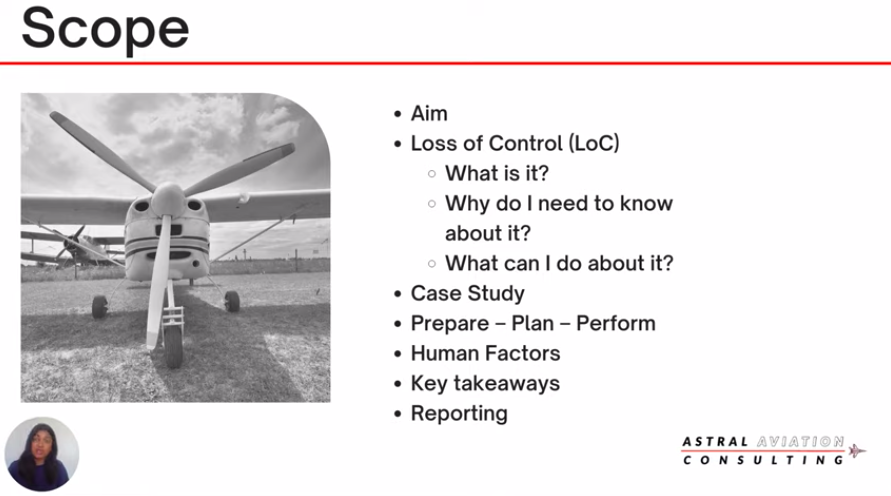
What is loss of control (LoC)?
- This is the unintended deviation from the flight path. This can be a change in height (wake turbulence), stalling, spinning or any other challenge that results in pilot control being lost. This can also occur on the ground – such as aquaplaning or a technical fault.
Interestingly, the EASA study 2011-15 showed that vast amount of LoC accidents was due to unintentional buffet, stalling or spinning. These types of incidents predominantly occurred during take-off, approach or during landing.
The fatal accident involving the G-FMKA Super Dimona in 2017 is an example of a loss of control. This involved an uncontrollable spin and eventual aircraft to ground impact.
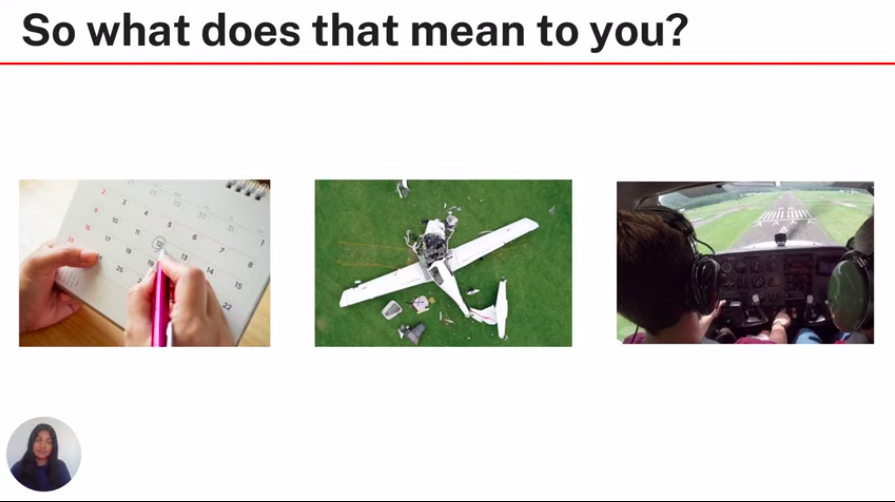
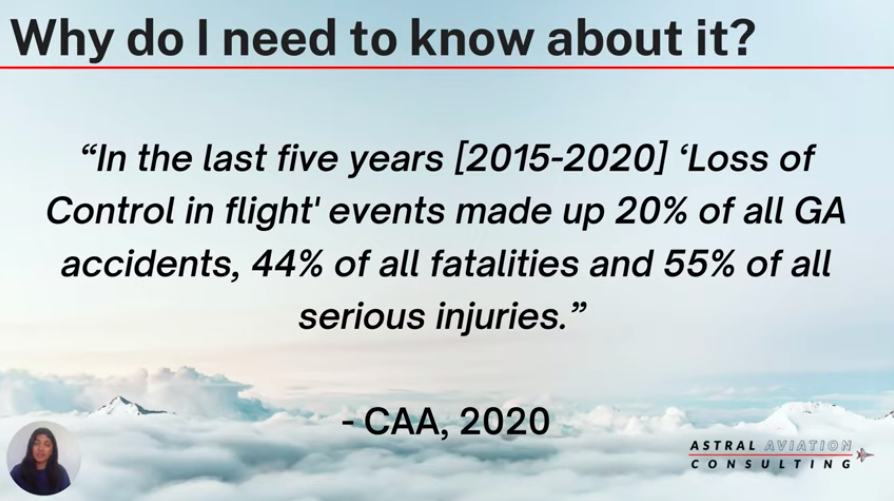
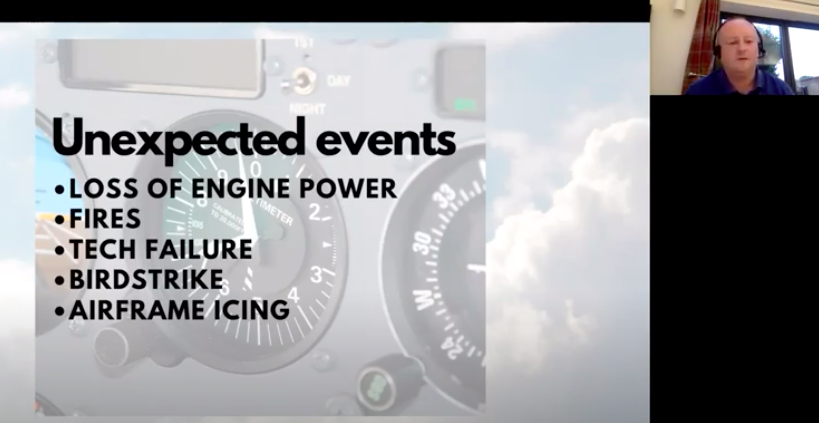
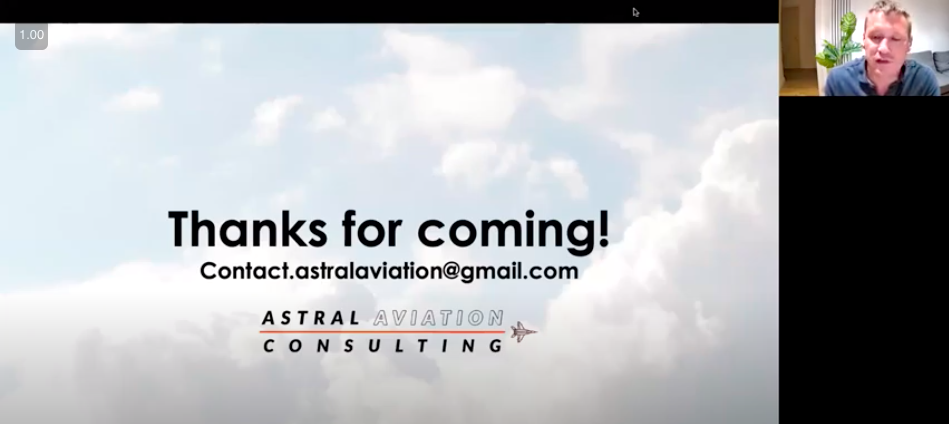
What to do to prevent a loss of control?
- Know your aircraft – make sure you are confident with the aircraft you’re flying in.
- Plan your sortie –planning ahead is incredibly important! Failing to prepare is preparing to fail.
- Expect the unexpected – excess wind, inadvertent IMC, poor visibility, crosswinds.
- Other unexpected events – engine power loss, fire, bird strike, airframe icing.
- Keep it simple and slowly build up your sorties – don’t rush!
- Aviate, aviate, aviate!
- Avoid distractions: passengers, high traffic, airspace, navigation worries
- Don’t be complacent – particularly when flying with family or friends. Situational awareness is critical at all times.
- Trust your own abilities – don’t panic at the first sign of distress.
The most important point is – aviate. In the event you are losing control of the aircraft it is incredibly important to remain calm and fly the aircraft before contacting ATC or doing anything else. Apply what you have learnt in your training to make the wings straight and level.
Prepare and plan
- Prepare your journey before-hand – be fully comfortable with the journey from departure to arrival.
- Plan ahead for possible diversions.
- Check the weather.
- Armchair flying – plan and incorporate challenges and threats into a practise flight before the actual flight. Practise what you will do in each scenario in order to become familiar and confident with each challenge and how to respond to them.
Whilst you may not be doing armchair flying prior to every flight – but it may be a good suggestion to practise armchair flying 3-5 times a month with various scenarios in order to stay ‘current’ in the event you are faced with a potential LoC.
Reflect
- Was this a good flight, and why?
- What could I have improved for the next flight?
- Was my planning and preparation sufficient enough?
- Was there any issues or lessons that I could share with others?
- Be responsible and be willing to learn from each flight.
Final thoughts
Being able to reflect will only help you learn and implement good practise for safe flights every time. If you wish to become a commercial pilot carrying passengers – then it’s more important than ever to cut out bad habits early on in your flying career.
If you ever experience a loss of control – the most important thing is to remain calm. For example, to achieve spin recovery it’s important to not overly apply the flight control to the other direction – rather assess the situation and quickly respond through calm, rational decisions. This will save those valuable seconds you’re in a descending spin and rapidly losing altitude.
It’s also important to know what your aircraft is doing – and being in control of it. Regularly practise preventative measures to avoid being in a real-life LoC situation – especially as this webinar points out to do armchair practises. Eventually every challenging scenario will become second-nature to you – and you will be equipt to rapidly respond to such situations.
Happy flying.
